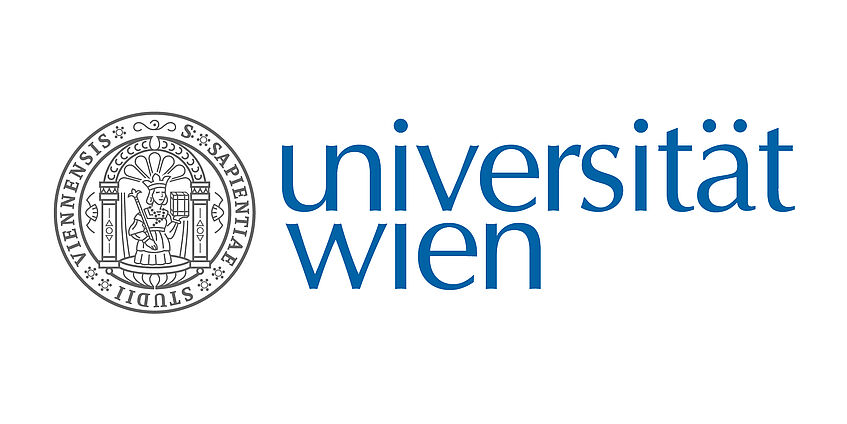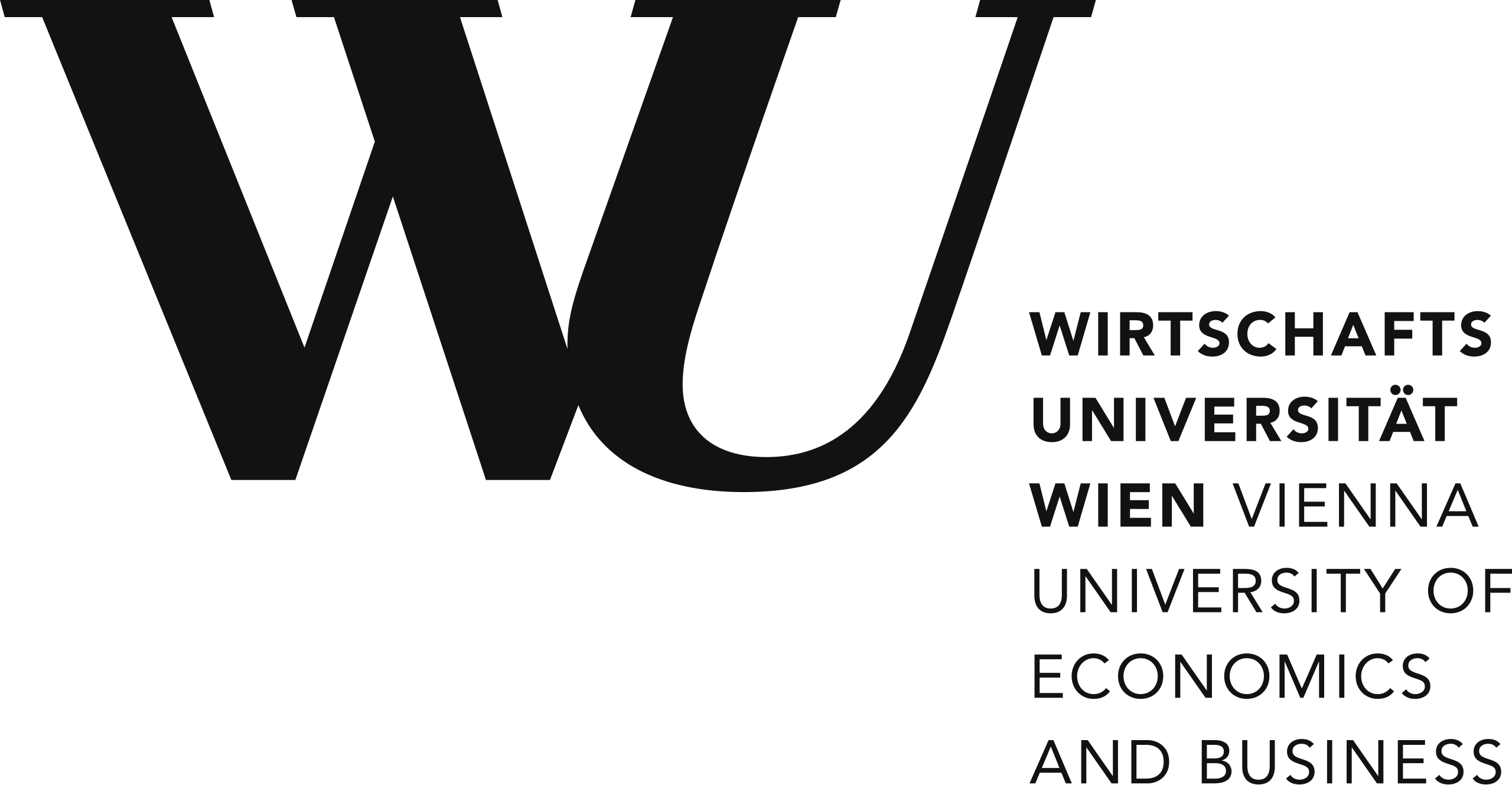Vienna Doctoral College on Digital Humanism: Second Call for Applications
Digital Humanism Doctoral College is seeking 5 PhD candidates.

On This Page
The Vienna Doctoral College on Digital Humanism is now accepting applications for its second cohort of five PhD candidates (part-time, 30 hours/week, starting November 1, 2025, for a duration of 1+3 years).
Digital technology profoundly shapes the world we live in by revolutionizing virtually all areas of human life. Therefore, it is paramount to identify and mitigate any undesirable effects of the currently ongoing digital transformation while also amplifying its positive impact on society. This is the mission of Digital Humanism, which deals with digital technology development and policies based on human rights, democracy, inclusion, and diversity.
The newly established Vienna Doctoral College on Digital Humanism invites applications from outstanding candidates eager to shape the future of this emerging interdisciplinary field. The Doctoral College is located across the TU Wien, University of Vienna, and WU Wien and its doctoral candidates tackle critical societal challenges arising from digital transformation. The Doctoral College offers a unique opportunity to conduct interdisciplinary research at the intersection of Informatics and Social Sciences/Humanities.
What to Expect?
Our mission is to educate the next generation of interdisciplinary scholars working on the impact digital technology has on society. The Vienna Doctoral College on Digital Humanism supports PhD projects addressing vital topics such as the future of democracy, misinformation, and privacy in a digital age, digital ecosystems, explainability in AI systems, systems respecting human autonomy and facilitating human self-efficacy and inclusive user designs, or strategies to foster AI adoption – applying interdisciplinary research methodologies. Our doctoral candidates and supervisors co-design research projects that align with the College’s vision and the Digital Humanism Roadmap 2022. Doctoral candidates will gain in-depth specialization in their chosen research areas while acquiring a broad understanding of methods and practices across disciplines. The Doctoral College emphasizes good scientific practices, ethics, diversity, and open science, preparing graduates for impactful careers in academia, industry, or public policy.
Each doctoral candidate within the Doctoral College will be employed by one of the three Vienna universities currently participating (TU Wien, University of Vienna, or WU Wien), and their research projects will be supervised by a supervisory team spanning at least two of these universities and at least two disciplines. Our supervisory teams include world-class experts on behavioural decision-making, labour science, applied AI, computational social science, political communication, and ethics of AI.
We are currently looking for PhD candidates for the following research topics:
1. Interdisciplinary Approaches to User Modeling in Data-Driven Systems
This PhD project proposes a rethinking of user modeling in data science by developing dynamic, context-aware, and interdisciplinary approaches that better reflect the complexity of human behavior in digital environments. Current computational models often rely on inherited assumptions from early psychological, communicative, or economic theories; assumptions that portray users as static, isolated, and predictable. Although such frameworks are outdated, they remain embedded within algorithms and system architectures, where they are rarely made explicit and are silently propagated at scale.
By drawing on insights from the social sciences and humanities, this research enriches core data science methods, such as machine learning, natural language processing, and network analysis, with more nuanced understandings of human interaction, communication practices, and social context. The project aims to expose and critique the hidden theoretical legacies within existing models while constructing alternatives that are flexible, adaptive, and better aligned with real-world behavior.
Through applied studies in areas such as social platforms, recommender systems, and interactive technologies, the project shows how interdisciplinary, value-aware modeling can lead to both improved system performance and more responsible representations of users. Ultimately, it contributes to the development of a new generation of user models that advance current practice in data science while supporting more transparent, accountable, and human-centered system design, aligned with the principles of Digital Humanism.
This project is supervised by faculty at TU Wien, WU Wien, and University of Vienna.
2. Navigating Heat: Sensor-Based Wayfinding Strategies in Public Spaces Under Variable Thermal and Weather Conditions
As climate change intensifies, extreme weather conditions—such as heatwaves, high humidity, and sudden thermal shifts—pose increasing challenges for safe and comfortable navigation in both indoor and outdoor public spaces. This PhD project explores how thermal comfort and environmental stress influence wayfinding behavior, and how smart architectural environments can support adaptive navigation through data-informed spatial cues and digital guidance systems. Using wearable and environmental sensors to monitor physiological responses (e.g., skin temperature, heart rate variability) alongside environmental factors (e.g., radiant heat, air temperature, solar exposure), the research will identify how people adjust their movement and spatial decisions under thermal and climatic stress.
The project will design and test adaptive wayfinding interventions, such as mobile navigation tools, that guide users toward more thermally comfortable and sheltered paths during extreme weather events. Combining architectural design, behavioral science, and digital technology, the project aims to inform resilient, inclusive, and climate-adaptive strategies for building complexes, courtyards, and other shared public environments.
The PhD candidate will work closely with the newly founded DataScape Lab at TU Wien, utilizing its infrastructure for real-time environmental sensing, spatial analysis, and data visualization. This interdisciplinary collaboration will support the development of evidence-based tools and prototypes that enhance both comfort and safety in the built environment under climate stress.
This project supports vulnerable groups by enhancing thermal comfort and safe navigation in public spaces during extreme weather conditions. Individuals such as older adults, children, migrants, and those with health or psychological sensitivities are more affected by thermal stress, which can impair mobility and decision-making. Sensor-based, language-independent wayfinding tools will offer intuitive, accessible guidance to help users avoid uncomfortable or unsafe areas. By integrating diverse physiological data and participatory design, the project enables inclusive, adaptive spatial solutions tailored to varying user needs.
This project is supervised by faculty at TU Wien and WU Wien.
3. Communicating AI: Knowledge Structures and Sensemaking Tools for Critical Engagement
As AI systems become ubiquitous in many areas of life, including education and work, it is essential that they are better understood by a variety of stakeholders. This includes different types of end-users in different arenas, such as AI engineers that create those systems, managers that deal with the embedding of AI systems in their organisations, educators or trainers in various domains, or non-expert audiences. For these, technical knowledge about AI technologies and related regulations (e.g., EU AI Act) is increasingly important. Such knowledge also includes critical reflection on and healthy scepticism towards the outputs of AI systems, including knowledge of limitations and biases.
A key challenge lies in how to efficiently and effectively equip these stakeholders to acquire (subsets of) the knowledge that they require for performing their various tasks. In this thesis, the aim is to explore various methods for AI knowledge communication and co-production relying on formal knowledge representation (to represent different expertise levels) and advanced visual interactions. We will test the effectiveness of such methods with an explicit focus on critical evaluation. Through this we aim to foster critical interaction with AI systems and a better understanding of human agency when working with AI.
This project is supervised by faculty at WU Wien and University of Vienna.
4. Legal Frameworks vs. Technological Realities
As digital technologies evolve at an unprecedented pace, legal and regulatory frameworks often struggle to keep up, creating tensions between promoting innovation, security demand, and safeguarding privacy and other fundamental rights. A key challenge lies in regulatory enforcement, which often faces structural limitations such as jurisdictional constraints, institutional capacity gaps, and the technical complexity of emerging technologies. Even the most thoughtfully designed privacy and security regulations often fall short due to weak enforcement mechanisms, inconsistent application, and insufficient penalties to ensure compliance.
This interdisciplinary project seeks to address these challenges by exploring the dynamic relationship between legal frameworks, regulatory strategies, and technology development. Using comparative legal analysis, case studies, and other empirical research, this project will identify governance models that effectively balance security imperatives with privacy protections across different jurisdictions and technological contexts. It will also propose practical enforcement strategies to bridge the gap between regulatory aspirations and real-world constraints and outcomes, offering innovative approaches to compliance monitoring in an era where traditional methods are increasingly inadequate.
This project is supervised by faculty at University of Vienna and TU Wien
5. Affordances of Open Science Infrastructures
Data sharing is central to contemporary science. As support for data sharing, visiting, and re-use has grown, a range of new forms of research infrastructure has emerged, from university depositories to public and private data- and knowledge bases. This project will critically examine this landscape, exploring what kinds of data sharing and re-use practices are afforded by different models for open science. It will lay the groundwork for novel approaches to documenting data as a process to cater to the diversity of inter- and cross-disciplinary data needs. Merging computer science and qualitative and quantitative social science methods, it will (1) explore the conceptual data models that underpin different infrastructures and how this affects data discovery, use and interpretation; (2) examine the logics and practices of different infrastructures and how these relate to imaginations of data sharing; (3) work to make recommendations regarding best practice in developing research infrastructures that aid open science.
This project is supervised by faculty at University of Vienna and TU Wien.
Your Qualification Profile
All doctoral candidates are expected to have the following qualifications as part of their profile:
- Strong interest in interdisciplinary research at the intersection of technology and society.
- Ability to work independently and as part of a research team in a collaborative environment.
- Proven ability to manage complex projects, prioritize tasks, and meet deadlines.
- Excellent verbal communication skills for interdisciplinary collaboration and presenting research findings.
- Excellent English skills, both written and spoken.
In addition, the following specific requirements apply for those interested in the current call for applications:
Interdisciplinary Approaches to User Modeling:
- Relevant Master’s degree (e.g., Computer Science/Informatics, Data Science, Business Informatics, Human-Computer Interaction, Computational Social Science or related disciplines).
- Desired: Knowledge of machine learning, experimental design, statistical analysis, and hypothesis testing, with experience in programming languages such as Python or R.
- Knowledge of OR interest in these areas:
- computational user modelling, personalization techniques, and/or recommender systems;
- theories and models of social science and society impact of technology;
- user research and quantitative/qualitative social science research methods (e.g., experimental economics, media effects research, political behaviour).
Navigating Heat:
- Relevant Master’s degree e.g., Architecture, Human-Computer Interaction, Data Science, Environmental Psychology, Informatics, Urban Studies, or related disciplines.
- High interest in pursuing interdisciplinary work combining architectural design, behavioral science, and digital technologies.
- Experience in programming and statistical analysis is a plus.
- Knowledge of OR interest to learn new skills in these areas:
- Human-computer interaction;
- Spatial data analysis and visualization;
- Knowledge representation and ontologies;
- Quantitative analysis (e.g., physiological/environmental sensor data);
- Qualitative analysis (e.g., user behaviour, interviews);
- Interdisciplinary and mixed-methods research;
- Adaptive systems and smart environments;
- Openness to learn research methods from architecture, computer science, and behavioural sciences.
- Good communication skills and willingness to collaborate in a diverse research team.
Communicating AI:
- Relevant Master’s degree e.g., Science and Technology Studies, Computer Science/Informatics, HCI, Data Science, Information Science, Information Systems, Management Science or related disciplines.
- High interest in pursuing interdisciplinary work.
- Experience in programming and statistical analysis is a plus.
- Knowledge of OR interest to learn new skills in these areas:
- Knowledge representation;
- Ontologies;
- Human-computer interaction;
- Quantitative analysis;
- Qualitative analysis;
- Interdisciplinary and mixed-methods research.
- Openness to learn research methods from several disciplines.
- Good communication skills.
Legal Frameworks vs. Technological Realities:
- Relevant Master’s degree or Diploma in Law or a related subject that allows registration in a Law Faculty doctoral programme at the University of Vienna, for example in the doctoral programme Interdisciplinary Legal Studies.
- Desired: The ideal candidate will have a background that combines Law with Computer Science. Experience in programming, statistical analysis and legal research is a plus.
- Knowledge of OR interest in these areas:
- Knowledge of EU legal acts relating to digitalisation (GDPR, AI Act, DGA, DA, DMA, DSA, …);
- Interdisciplinary and mixed-methods research;
- Security, privacy, and data protection.
Affordances of Open Science Infrastructures:
- Relevant Master’s degree (e.g. Science and Technology Studies, Computer Science/Informatics, HCI, Data Science, Information Science, or related disciplines) with evidence or experience of interdisciplinary work.
- Desired: Ideally, candidates will have a background that combines computer science and social science training, with experience of the key methods of these fields (e.g. programming, statistical analysis, interviewing, ethnography).
- Knowledge of OR interest in these areas:
- Critical data studies;
- Interdisciplinary and mixed-methods research;
- Data and research infrastructures;
- Open science;
- Human-Centred Design.
What we offer
The Doctoral College serves as a hub for Digital Humanism research, promoting a strong scholarly community in Vienna. Collaboration is supported by innovative strategies, including interdisciplinary supervision, shared working spaces, and regular seminars featuring international experts.
- Truly interdisciplinary work environment, defined by an interdisciplinary faculty across three top universities, as well as doctoral projects that are supervised and conducted across disciplines and institutions.
- Further training & coaching: Opportunity to deepen your skills on an ongoing basis. The Doctoral College will offer all candidates a bespoke doctoral training plan.
- Fair salary: The monthly gross salary is EUR 2,786.10 14 times/year for 30 hours/week (corresponding to 75% of a full position).
- Inspiring working atmosphere: You are a part of an interdisciplinary and international academic team in a healthy and fair working environment.
- Work-life balance: Employees at the host institutions enjoy flexible working hours and can partially work remotely.
- Good public transport connections: Your workplace is easily accessible by public transport.
- Equal opportunities for all: We welcome every additional/new personality to the team.
Application
Do you want to join the Vienna Doctoral College on Digital Humanism?
Join us in shaping Digital Humanism, addressing societal challenges of the digital era, and establishing Vienna as a global centre for interdisciplinary research. Applications are welcome from candidates with diverse academic backgrounds who are ready to contribute to this transformative initiative.
Please submit your application through the respective university’s job portal by August 31st, 2025 using the following links:
- Topic 1 - TU Wien - Interdisciplinary Approaches to User Modeling
- Topic 2 - TU Wien - Navigating Heat (Job portal link coming soon!)
- Topic 3 - WU Wien - Communicating AI
- Topic 4 - University of Vienna - Legal Frameworks vs. Technological Realities
- Topic 5 - University of Vienna - Affordances of Open Science Infrastructures
Important: If you want to apply for more than one topic, you have to hand in a separate application for each. In this case, please indicate which topics you apply for and include a preference ranking in your letter of motivation.
The following documents must be submitted (in English) in your application:
- Letter of motivation (detailing previous research achievements, research goals, career plans, motivation for applying, and to what extent your profile covers the expectations of the research topic of the position). Important: If you are applying for more than one topic, please clearly specify all topics you apply for and include a preference ranking in your letter of motivation.
- A complete CV, including a list of previous scientific expertise, awards, grants, stays abroad, attended lectures, attended summer schools, attended workshops, skills, and publications (if applicable).
- Abstract in English of your MA/MSc thesis, BA/BSc thesis, or of a research project you were involved in.
- A complete list of finalised studies and transcripts of all grades.
- 1-2 names of academic references and their contact addresses (e.g., your Master’s thesis supervisor).
- Any other material you think is relevant.
We expect interviews will be held online in September, 2025.
If you have any questions, please contact the coordinators of the Doctoral College, Peter Knees (TU Wien), Sophie Lecheler (University of Vienna) and Marta Sabou (WU Wien) using the Doctoral College email address: dighum-dc@ec.tuwien.ac.at
For more information on the Vienna Doctoral College on Digital Humanism, please visit our website https://dighumcollege.at.





